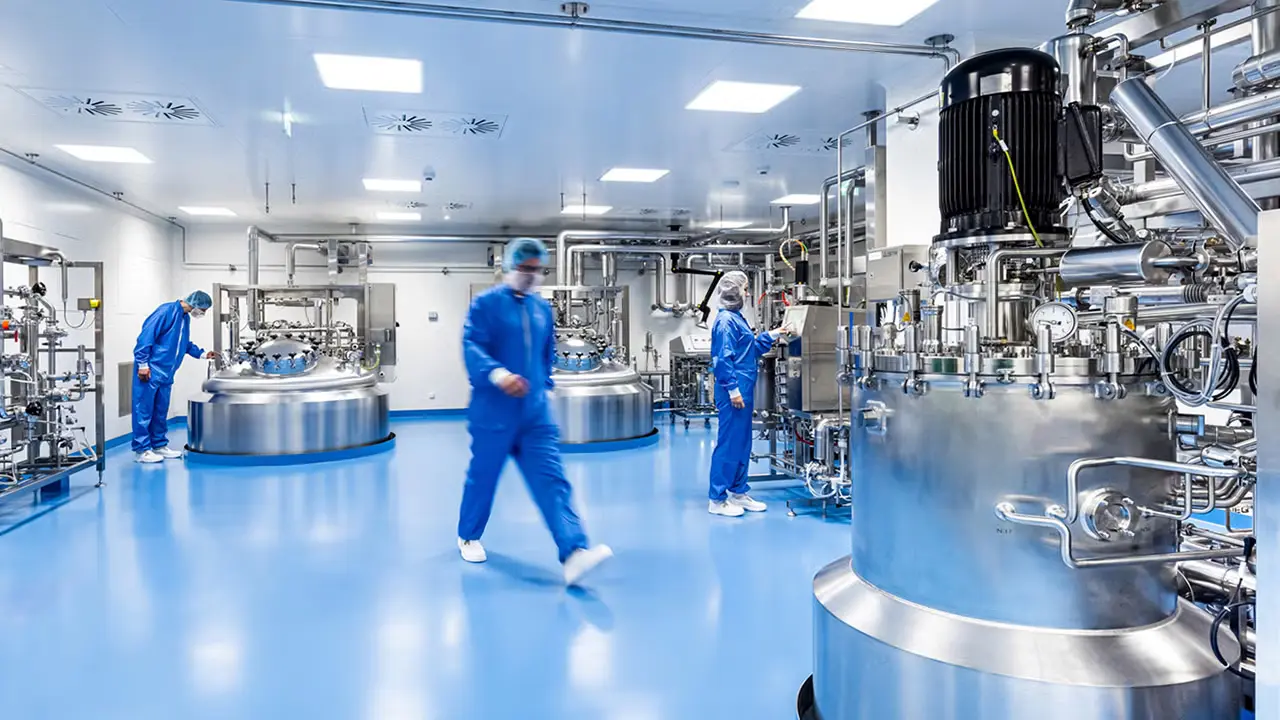Biotech skids are pre-engineered systems that combine various equipment and technology employed in the pharmaceutical industry to automate multiple production processes.
These systems are modular in nature and are designed to offer a flexible solution to the bio-manufacturing requirements. They can encompass all pumps, mixers, filtration, and sterilization devices, as well as the latest bioreactor cultivation systems.
The skid systems also provide companies with a turnkey solution, which is more convenient to install, scale, and maintain compared to traditional bespoke equipment setups.
Asking yourself: What functions do Biotech skids perform in pharma manufacturing? How do they benefit the pharma industry? What regulatory compliance is required? And what are their future roles? Let’s delve into this guide to get their answers…
1. How Biotech Skids Function In Pharma Manufacturing
Biotech skids are utilized in various pharmaceutical manufacturing applications, particularly in the production of biologics, vaccines, and cell-based therapies. Such skids can automate operations such as cell culture preparation, fermentation, and the purification of biological products.
By combining several functions within one system, they help reduce the number of hands-on activities, minimize human error, and ensure consistency within batches.
Biotech skids can also prevent a non-sterile environment, which in practice complies with the standards of GMP (Good Manufacturing Practices) and enhances production safety and efficiency.
2. What Benefits Biotech Skids in the Pharma Industry Offers
Utilizing biotech skids in the pharmaceutical sector offers numerous advantages, particularly in terms of cost efficiency, scalability, and regulatory compliance.
First, they minimize capital investments by integrating multiple key operations into a single modular unit. These skids come in various sizes or can be modified to fit specific production needs with little disturbance.
They also provide flexibility in the production process, making it more straightforward to respond to new product types or variations in regulatory requirements. Additionally, biotech skids maintain high-quality production standards and improve operational efficiency.
3. Biotech Skids and Regulatory Compliance
The pharmaceutical industry is highly regulated, so it is vital to comply with standards, including GMP, FDA, and EMA guidelines. Biotech skids are designed to meet these high standards, featuring in-line sterilization, validation-compliant documentation, and a high level of control.
They make regulatory audits easy and ensure that manufacturing practices remain within legal parameters. Compliance can be simplified with biotech skids, saving time and effort in demonstrating compliance with regulations. Ultimately, this accelerates the time-to-market for new drugs and therapies.
4. The Future of Biotech Skids in Pharma
The role of biotech skids is projected to grow as the pharmaceutical industry continues to evolve. The increased demand for biologics and personalized medicine is driving the need for more efficient and flexible manufacturing solutions.
More sophisticated biotech skids integrating AI and machine learning to optimize processes in real-time, enable predictive maintenance, and improve product quality control may emerge in the future.
The continued evolution of biotech skids will likely play a crucial role in the ongoing transformation of the global pharmaceutical landscape.

